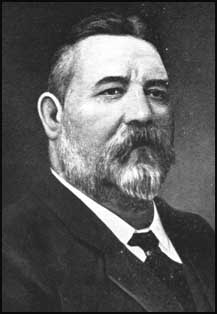Related Research Articles
The Miners' Federation of Great Britain (MFGB) was established after a meeting of local mining trade unions in Newport, Wales in 1888. The federation was formed to represent and co-ordinate the affairs of local and regional miners' unions in England, Scotland and Wales whose associations remained largely autonomous. At its peak, the federation represented nearly one million workers. It was reorganised into the National Union of Mineworkers in 1945.

William Abraham, universally known by his bardic name, Mabon, was a Welsh trade unionist and Liberal/Labour politician, and a member of parliament (MP) from 1885 to 1920. Although an MP for 35 years, it was as a trade unionist that Abraham is most well known. Initially a pioneer of trade unionism, who fought to enshrine the principle of workers' representation against the opposition of the coal-owners, he was regarded in later life as a moderate voice believing that disputes should be solved through conciliation rather than industrial action. This drew him into conflict with younger and more militant leaders from the 1890s onwards. Although the defeat of the miners in the Welsh coal strike of 1898 was a clear defeat for Mabon's strategy, his prestige was sufficient to ensure that he became the first president of the South Wales Miners' Federation which was established in the wake of the dispute. Abraham was noted for his powerful speaking voice, and was a renowned orator in English and Welsh.

The South Wales Miners' Federation (SWMF), nicknamed "The Fed", was a trade union for coal miners in South Wales. It survives as the South Wales Area of the National Union of Mineworkers.

Benjamin Pickard, usually Ben Pickard, was a British coal miner, trade unionist and Lib–Lab politician.
The Midland Counties Miners' Federation was a trade union, representing coal miners in the West Midlands region of England.
The North Wales Miners' Association was a trade union representing coal miners in Wales.
The Fife and Kinross Miners' Association was a coal miners' trade union based in Fife and Kinross-shire in Scotland.
David Morgan was a Welsh miners' agent and trade unionist who played a prominent role in the history of industrial relations in the South Wales Coalfield from the 1870s until his death in 1900.
The Amalgamated Association of Miners (AAM) was formed in 1869 in Lancashire, at a time of increasing industrial conflict in the British coalfields.

The Somerset Miners' Association or Somersetshire Miners' Association was a coal mining trade union based in the Somerset coalfield, Somerset, England.
The Bristol Miners' Association was a trade union representing coal miners in Bristol and Bedminster in England.

Thomas Halliday was a British trade unionist.
The Warwickshire Miners' Association was a trade union representing coal miners in the Warwickshire area of England.
George Henry Rowlinson was a British trade unionist.
The West Bromwich Miners' Association was a trade union representing coal miners in southern Staffordshire and eastern Worcestershire, in the United Kingdom.
The Cambrian Miners' Association, also known as the Rhondda District Miners' Association, was an early trade union representing coal miners in the Rhondda Valley, in Wales.
The Western Miners' Association was a trade union representing coal miners in parts of South Wales, centred on Neath.
The Anthracite Miners' Association was a trade union representing coal miners in parts of Carmarthenshire, Glamorgan and Breconshire, in South Wales.
Hubert Jenkins was a British trade unionist and politician.

The 1893 miners' strike was a major industrial action affecting many areas of Great Britain.
References
- 1 2 3 4 Arthur Marsh and Victoria Ryan, Historical Directory of British Trade Unions, vol.II, pp.218-219
- ↑ Humphrey Phelps, The Forest in old photographs: a second selection, p.52
- ↑ University of the West of England, "Trade unions", Bristol Historical Resource
- ↑ Kevin Morgan, Roads to Freedom, p.86